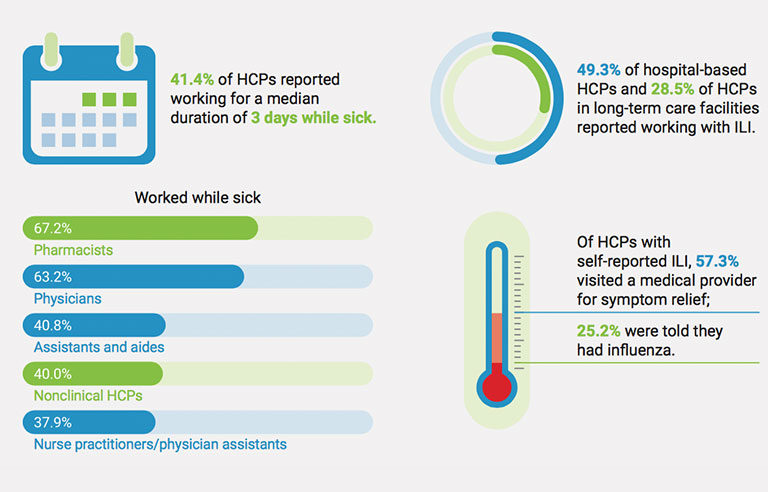‘Alarming’ number of health care professionals work while having flu symptoms: study

Arlington, VA – More than 40 percent of health care professionals who reported at least one symptom of influenza during a recent flu season did not stay home from work, according to a new study from the Centers for Disease Control and Prevention.
Researchers looked at data from a survey of 1,914 health care workers conducted during the 2014-2015 flu season. They found that of the 414 respondents who reported at least one symptom of the flu – fever, cough, sore throat or some combination of the three – 183 chose to work regardless.
The most common reasons the health care professionals gave for working while sick were:
- Could still perform job duties
- Not feeling “bad enough” to miss work
- Did not think they were contagious
- Obligation to colleagues
- Too difficult to find co-workers to cover shifts
The researchers recommend that employers provide “clear communication of workplace policies and expectations” for health care workers taking sick leave when experiencing at least one flu symptom. They also suggest an examination of paid sick leave policies, training to modify health care professional “social and cultural norms,” and the use of backup workers to take over for sick colleagues.
“The statistics are alarming,” lead researcher Dr. Sophia Chiu said in a Nov. 1 press release. “At least one earlier study has shown that patients who are exposed to a health care worker who is sick are five times more likely to get a health care-associated infection. We recommend all health care facilities take steps to support and encourage their staff to not work while they are sick.”
The study was published in the November issue of the American Journal of Infection Control.
Post a comment to this article
Safety+Health welcomes comments that promote respectful dialogue. Please stay on topic. Comments that contain personal attacks, profanity or abusive language – or those aggressively promoting products or services – will be removed. We reserve the right to determine which comments violate our comment policy. (Anonymous comments are welcome; merely skip the “name” field in the comment box. An email address is required but will not be included with your comment.)

